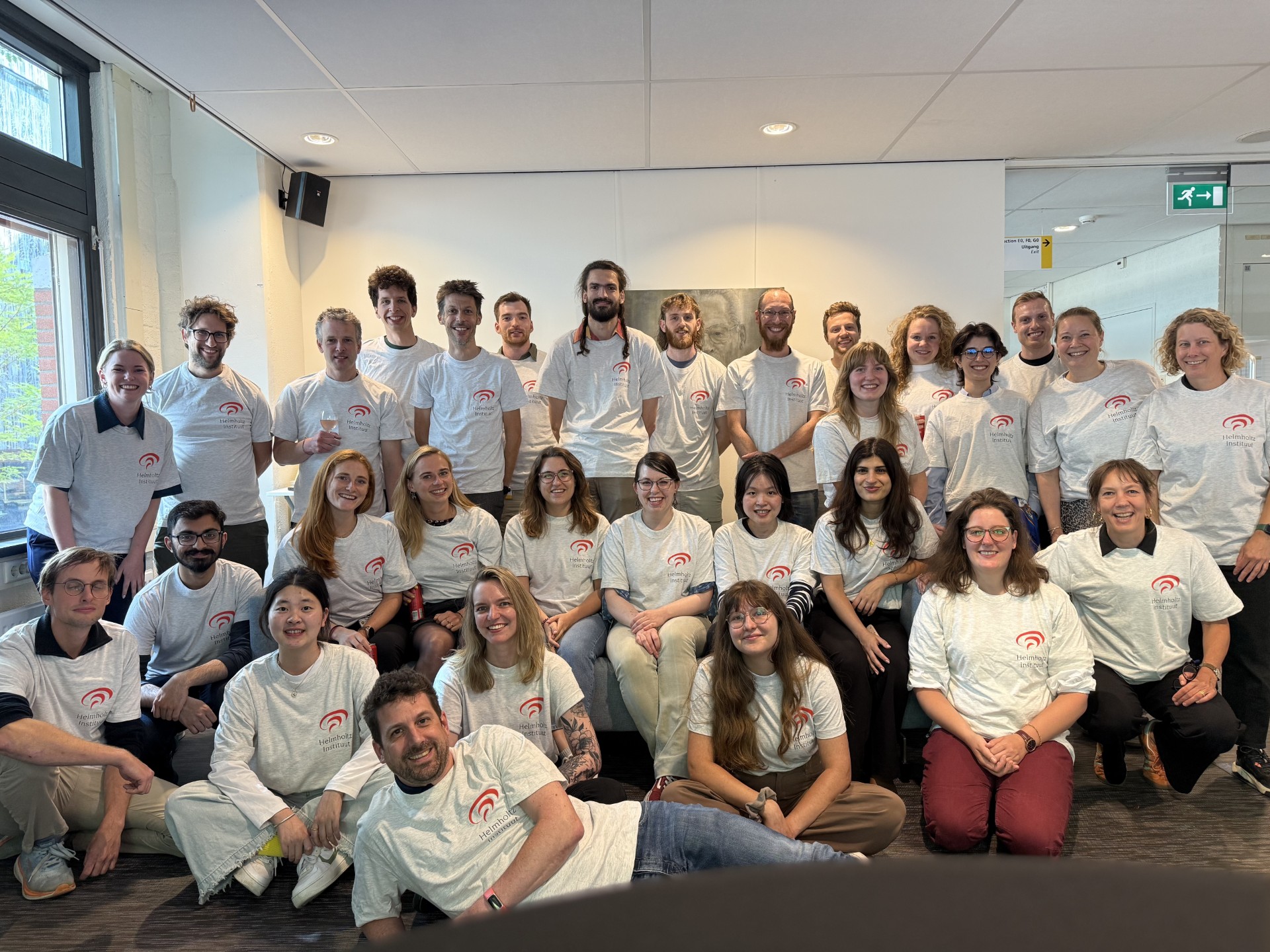Recent events

Helmholtz lecture Heleen Slagter, March 17: Attention and distraction in the predictive brain
Helmholtz lecture Prof. Heleen Slagter (Faculty of Behavioural and Movement Sciences, Cognitive Psychology, VU Amsterdam): Title: Attention and distraction in the predictive brain Abstract: to be announced, visit the website for updates. Location: Ruppert Rood, Leuvenlaan 21, 3584 CE Utrecht Helmholtz Lectures take place from 4 to 5pm, with drinks afterwards in the pantry of…
Read more
Helmholtz lecture Leila Reddy, October 14: Sequence learning in human hippocampal neurons
Helmholtz lecture Dr. Leila Reddy (French National Centre for Scientific Research): Title: Sequence learning in human hippocampal neurons Abstract: The ability to maintain a sequence of items in memory is a fundamental cognitive function. In the rodent hippocampus, the representation of sequentially organized spatial locations is reflected in the activity of place cells, and the timing…
Read more
Helmholtz lecture Denny Borsboom, February 10: Theory construction methodology for building theories in psychology
Helmholtz lecture Denny Borsboom (Department of Psychology, University of Amsterdam): Title: Theory construction methodology for building theories in psychology Abstract: Several authors have lamented the lack of systematic theory formation in scientific psychology, and some have gone as far as to pinpoint the paucity of theory as a cause of the reproducibility crisis (Borsboom, 2013). However, little practical…
Read more
Helmholtz lecture Kenny Coventry, January 27: On the interactions between language, perception and attention
Helmholtz lecture Prof. Kenny Coventry (School of Psychology at the University of East Anglia, UK): Title: On the interactions between language, perception and attention Abstract: Talking about where objects/places are located is one of the most basic functions of language. Using spatial terms requires coordination between language and non-linguistic systems to be able to direct the attention…
Read more
Helmholtz lecture Monika Harvey, January 13: Action and Non-invasive Brain Stimulation Training in patients with sub-acute and chronic spatial neglect
Helmholtz lecture Prof. Monika Harvey (School of Psychology and Neuroscience, University of Glasgow, UK): Title: Action and Non-invasive Brain Stimulation Training in patients with sub-acute and chronic spatial neglect. Abstract: Up to 80% of people who experience a right-hemisphere stroke suffer from hemispatial neglect, a severe visuospatial impairment, where they fail to perceive/misperceive items presented…
Read more
Helmholtz lecture Wolfgang Einhäuser, November 25: Attention and gaze in real and virtual worlds
Helmholtz lecture Prof. Dr. Wolfgang Einhäuser-Treyer (Chemnitz University of Technology): Title: Attention and gaze in real and virtual worlds Abstract: When studying real-world behavior, experimenters face a trade-off between ecological validity and experimental control. On the one hand stimuli and task shall be as realistic as possible, while on the other hand all relevant variables shall be carefully…
Read more
Helmholtz lecture Marius Peelen, November 4: Interactions between objects and scenes in visual perception
Helmholtz lecture Dr. Marius Peelen (Donders Institute for Brain, Cognition and Behaviour, Nijmegen): Title: Interactions between objects and scenes in visual perception Abstract: Real-world visual input often consists of rich scenes that are meaningfully composed of multiple objects that interact in complex ways (e.g., by partially occluding each other). Despite this complexity, we recognize scenes, and…
Read more
Helmholtz lecture Alexander Sack, June 24: The State is the Art: Using simultaneous TMS-EEG-fMRI to assess oscillatory brain state-dependent gating of cortico-subcortical network activity
Date: 24 June 2022, 4-5pm Speaker: Alexander Sack from Maastricht University The State is the Art: Using simultaneous TMS-EEG-fMRI to assess oscillatory brain state-dependent gating of cortico-subcortical network activity The human brain can flexibly activate a concrete set of brain regions within dynamically changing networks depending on behavioural and cognitive context. Neuroimaging can map these…
Read more
Helmholtz lecture Frank van Overwalle, May 20: “The forgotten brain: The role of the cerebellum in sequencing social actions”
Date: 20 May 2022, 4-5pm Speaker: Prof. Frank van Overwalle from Vrije Universiteit Brussel Title: The forgotten brain: The role of the cerebellum in sequencing social actions. Abstract: The capacity to understand another person’s emotions, intentions, beliefs and personality traits, is termed social mentalizing. During the last two decades, social neuroscience has made great progress…
Read more
Movie night, June 10: Movie: “In Silico” – Noah Hutton
After the movie screening there will be an Q&A with the director Noah Hutton where you will have the opportunity to ask your own questions. We will continue the event with an optional workshop in which you will be motivated to work through a discussion guide in a small group. You can indicate if you…
Read more

